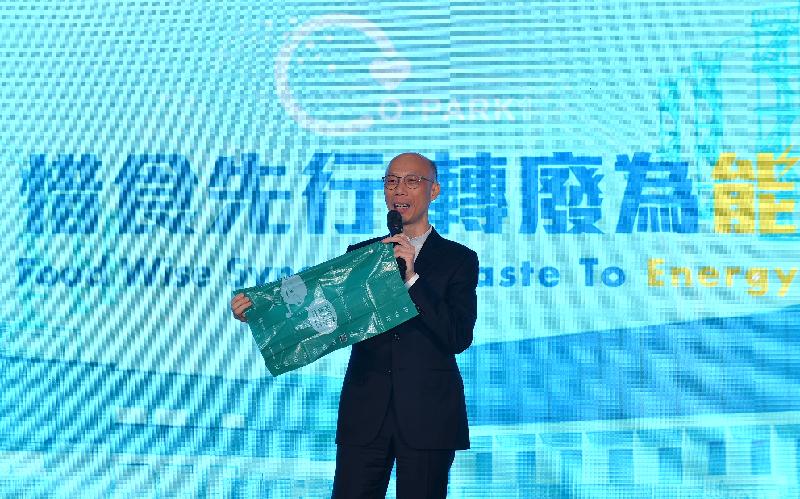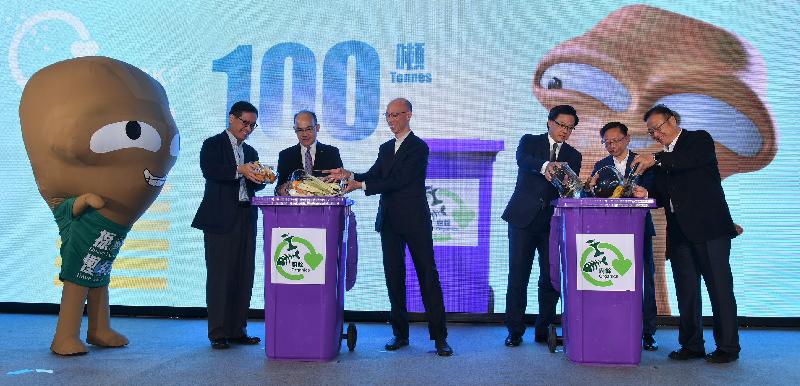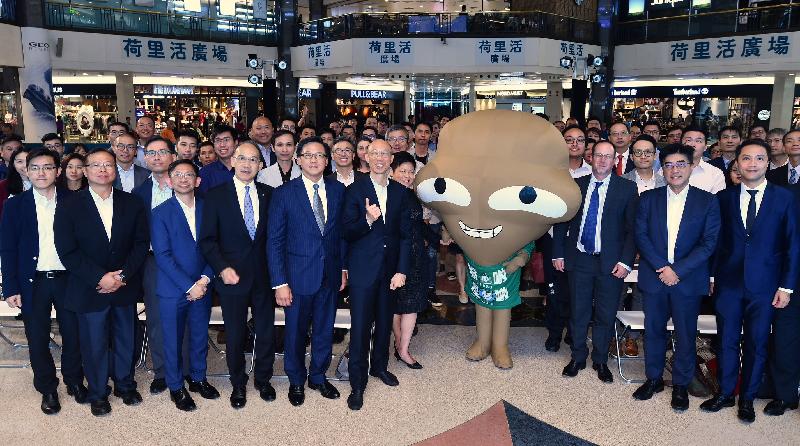EPD commends over 100 organisations for delivering food waste to O·PARK1 to turn waste into energy (with photos)
******************************************************************************************
Speaking at the pledging ceremony, the Secretary for the Environment, Mr Wong Kam-sing, said that O∙PARK1 uses advanced anaerobic digestion and composting technologies to convert food waste into biogas for power generation. In addition to being the first organic resources recovery centre in Hong Kong to convert food waste to electricity, O∙PARK1 is also one of the largest facilities of its kind in Asia, marking a new milestone in Hong Kong's journey of turning waste into energy.
Mr Wong said that the Government will continue to promote the Food Wise Hong Kong Campaign to encourage members of the public to cherish food and reduce waste at source. At the same time, as the food production process inevitably produces various types of food waste, the Government will develop a network of organic resources recovery centres in phases and adopt new technologies to recycle food waste into renewable energy and other useful materials, and explore utilising existing and future sewage treatment plants to improve the overall food waste treatment capacity by making use of food waste/sewage sludge anaerobic co-digestion technology.
Mr Wong said he was pleased to note that today's event was joined by more than 100 stakeholders. Furthermore, he noted that many C&I organisation representatives have also expressed their intention to deliver unused food waste to O∙PARK1 for treatment. He said this proves that members of different sectors are very supportive of the concept of "Food Wise Synergy, Waste-to-Energy". He also called for the participation of other C&I organisations to support the operation of O∙PARK1 and jointly reduce waste and carbon emissions.
Located at Siu Ho Wan in North Lantau, O∙PARK1 is a self-sustainable food waste recycling facility. Apart from generating heat and power for internal use, it is estimated that about 14 million kWh of surplus electricity, an equivalent of the energy consumption of about 3 000 households, can be generated by O∙PARK1. It is also estimated that some 25 000 tonnes of greenhouse gas emissions can be reduced each year. In addition, O∙PARK1 also helps the recycling of resources by generating about 6 500 tonnes of compost per year as a by-product.
Since the operation of O∙PARK1 commenced, more than 8 000 tonnes of food waste have already been treated and its treatment capacity will gradually increase. At present, O∙PARK1 treats more than 100 tonnes of food waste per day. Upon its full commissioning, the plant's capacity will gradually increase to 200 tonnes per day.
At today's ceremony, representatives of some supporting organisations also shared details of their experience in practising food waste separation and collection and delivery of food waste to O∙PARK1 for recycling. They stressed that close collaboration between food waste producers, property management companies, cleaning contractors and food waste collectors is the key to the successful implementation of separating food waste at source. In addition, they said that adequate training for management and front line staff is also essential.
Other officiating guests at today's ceremony included the Chairman of the Panel on Environmental Affairs of the Legislative Council, Dr Junius Ho; the Chairman of the Advisory Committee on Recycling Fund, Mr Jimmy Kwok; the Head of the Department of Biology of Hong Kong Baptist University, Professor Jonathan Wong; Vice Chairman of the Association of Restaurant Managers, Mr Tony Tam; and the President and Honorary Chairman of the Hong Kong Waste Disposal Industry Association, Mr Thomas Tam.
Ends/Thursday, November 1, 2018
Issued at HKT 18:00
Issued at HKT 18:00
NNNN







